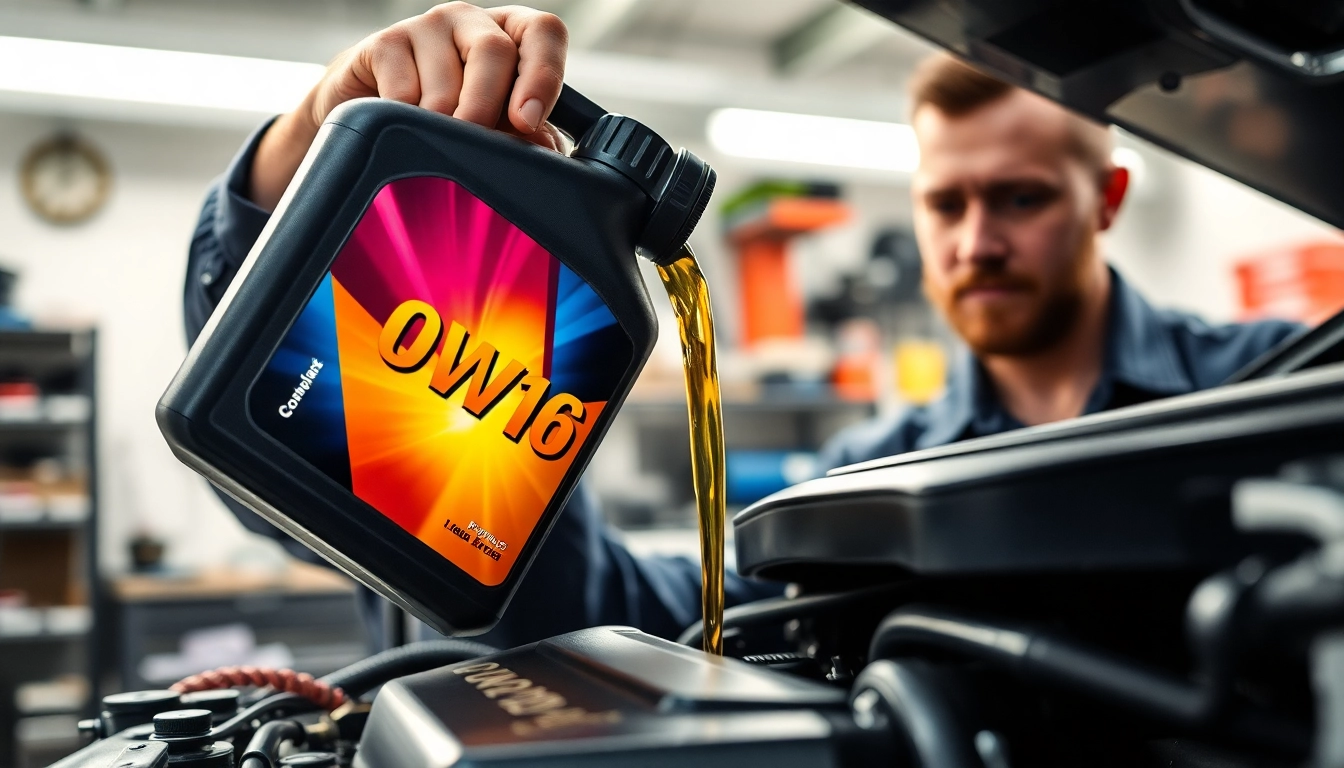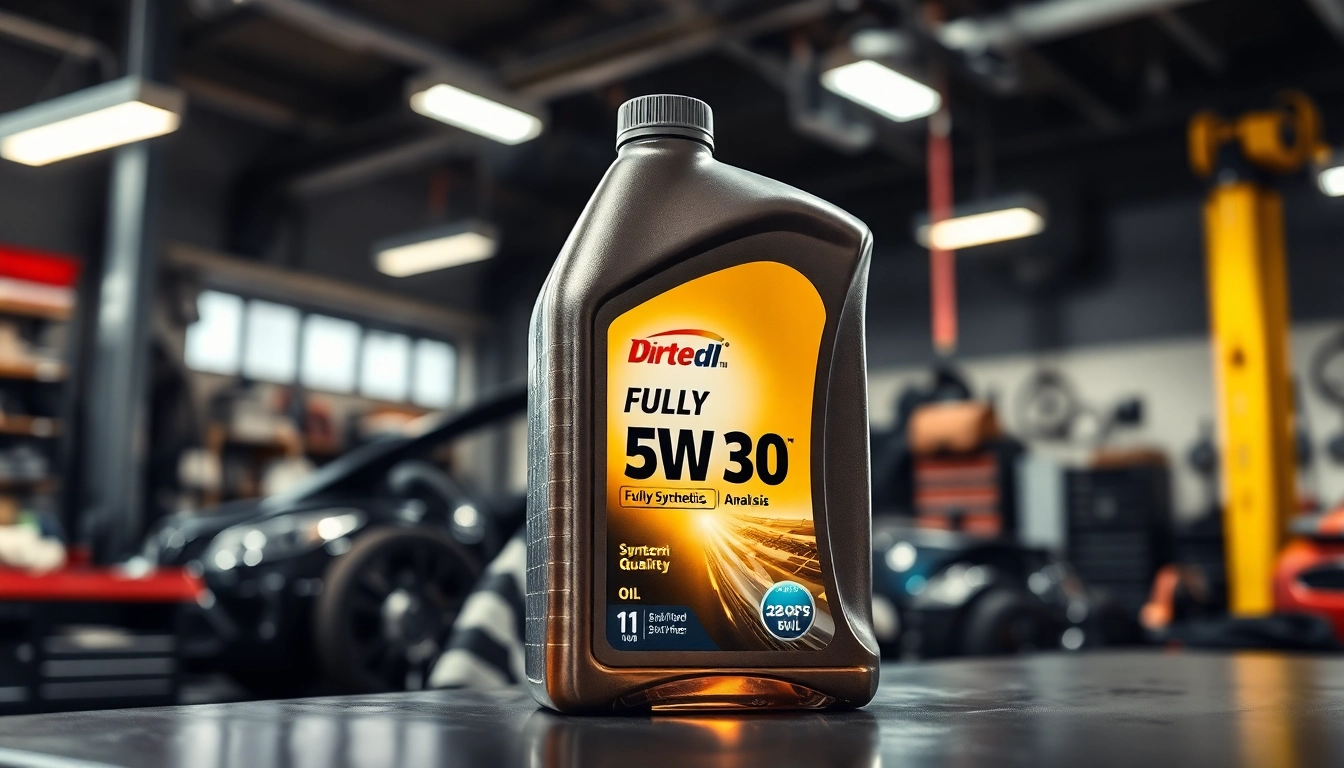What is 0W16 Oil?
Definition and Viscosity Ratings
The world of engine oils can be a complex realm for many vehicle owners, especially when it comes to understanding the nuances of viscosity ratings. 0W16 oil is a specific type of multi-viscosity motor oil engineered to provide optimal performance in certain types of engines. The “0W” indicates the oil’s viscosity rating at low temperatures, meaning it performs excellently in cold conditions, while the “16” specifies its viscosity at operating temperatures.
Composition of 0W16 Oil
0W16 oils are typically formulated as full synthetic oils. This composition includes a higher proportion of synthetic base oils, which provide superior lubrication, thermal stability, and oxidation resistance compared to conventional motor oils. Additives are also integral to the composition of 0W16 oils; detergents, anti-wear agents, and viscosity index improvers work together to enhance engine cleanliness and performance.
Benefits of Using 0W16 Oil
One of the primary benefits of using 0W16 oil is its excellent fuel efficiency. Thinner oils like 0W16 can enhance fuel economy by reducing internal friction within the engine, allowing it to operate more efficiently. Additionally, because it is a fully synthetic oil, it provides better engine protection and performance under a range of temperature conditions. This is particularly important for modern engines designed to operate using lower viscosity oils, allowing for improved fuel economy and lower emissions.
How 0W16 Oil Compares to Other Oils
0W16 vs. 0W20: Key Differences
When comparing 0W16 to 0W20, the key distinction lies in viscosity and performance characteristics. While both oils perform similarly in colder temperatures, the slightly thicker 0W20 oil can provide marginally better protection under extreme stress conditions. However, 0W16 oil is optimized for fuel efficiency and is often recommended for certain hybrid vehicles and fuel-conscious drivers. The optimal choice depends largely on manufacturer specifications and the typical driving conditions faced by the vehicle.
Effect on Engine Performance
The choice of oil can significantly impact engine performance. Using a lower viscosity oil like 0W16 can reduce engine drag, which is essential for maximizing horsepower and torque, particularly in smaller engines. If the manufacturer recommends or allows for 0W16, using it can ensure optimal performance, particularly in urban driving conditions where cold starts and stop-and-go traffic are frequent.
Fuel Efficiency Comparisons
Fuel efficiency remains a top priority for many drivers, and utilizing the correct motor oil is essential for achieving maximum performance in this area. Studies and user reports indicate that vehicles with 0W16 oil experience enhanced fuel economy compared to those using thicker oil grades. Notably, for hybrid vehicles that frequently cycle between their electric motor and gasoline engine, the thinner oil helps to maintain efficiency across this transition.
Choosing the Right 0W16 Oil for Your Vehicle
Top Brands and Recommendations
There are several reputable brands producing high-quality 0W16 oils. Brands such as Mobil 1, Valvoline, and Toyota’s own genuine motor oil come highly recommended. Mobil 1 Advanced Fuel Economy 0W16 is a popular choice, praised for its excellent cold-weather performance and engine protection features. Each brand typically provides detailed specifications and performance data, assisting customers in making informed decisions.
Understanding OEM Specifications
Before selecting an oil, it’s crucial to consult the owner’s manual for OEM (Original Equipment Manufacturer) specifications. These guidelines will clarify whether 0W16 is suitable for your specific vehicle model. Following the manufacturer’s recommendations not only supports vehicle performance but also protects warranty coverage in case of engine problems.
Where to Purchase 0W16 Oil
0W16 oil can be sourced from various retailers, both online and in physical stores. Major retailers like Walmart, AutoZone, and Amazon offer a wide range of 0W16 options, making it easy for consumers to find the appropriate product. Additionally, checking local auto parts stores can yield specific brands preferred by local mechanics and automotive enthusiasts.
Changing Oil: Best Practices for 0W16 Oil
Step-by-Step Oil Change Guide
Changing your oil regularly is vital to maintaining engine health. Here’s a quick step-by-step guide:
- Gather necessary supplies: 0W16 oil, an oil filter, an oil catch pan, a wrench, and a funnel.
- Warm up your engine for a few minutes to thin the oil for easier drainage.
- Lift your vehicle safely with jack stands.
- Remove the oil drain plug to let the old oil flow into the catch pan.
- Change the oil filter by removing it with your wrench.
- Install the new oil filter and replace the drain plug.
- Pour in the new 0W16 oil using a funnel, ensuring not to overfill.
- Run your engine briefly and check for leaks before disposing of the old oil properly.
Tools Needed for Oil Change
Before you start the oil change process, ensure you have the following tools on hand:
- Oil catch pan
- Wrench or socket set
- Oil filter wrench
- Funnel
- Jack and jack stands (or a vehicle lift)
Common Mistakes to Avoid
When changing your oil, avoid these common mistakes to ensure a successful change:
- Using the wrong oil type/viscosity.
- Overfilling the engine with oil.
- Neglecting to check for leaks after completing the change.
- Failing to dispose of old oil and filters properly.
Frequently Asked Questions About 0W16 Oil
Is 0W16 Oil Suitable for All Vehicles?
No, 0W16 oil is specifically designed for certain vehicles, particularly those manufactured by Toyota and other manufacturers that allow for its use. Always refer to your vehicle’s owner’s manual for the recommended oil viscosity.
Can You Mix 0W16 Oil with Other Grades?
Mixing oil grades is not advisable. While 0W16 can technically be mixed with oils of different grades, doing so may impact performance and lubrication. If you find yourself in an emergency situation, it’s better to top off with the same viscosity oil when possible.
How Often Should You Change 0W16 Oil?
The recommended interval for changing 0W16 oil varies depending on driving conditions and vehicle specifications. Generally, changing your oil every 7,500 miles or every six months is a common guideline. However, following the manufacturer’s recommendations for your specific vehicle is crucial for maintaining engine health.










Leave a Reply